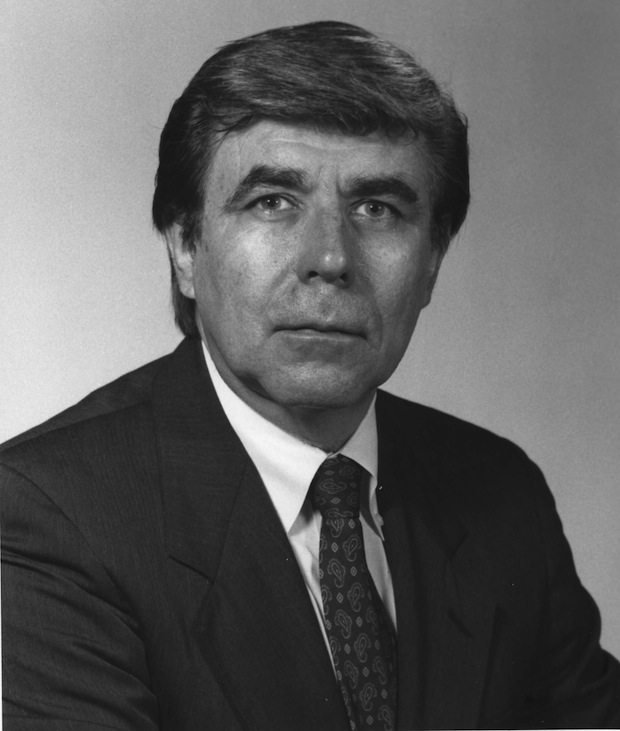
The Gilbert Leveille Lectureship Award is sponsored by the Institute of Food Technologists (IFT) and the American Society of Nutrition (ASN) for someone who embraces Nutrition Science with Food Science Technology. The award is for $5000 and a lecture at ASN or IFT in alternative years. The Award in 2015 was presented at IFT’s Annual Meeting and Food Expo held in Chicago on 11-14 July to Dr Theodore (Ted) Labuza, the Morse Alumni Distinguished Teaching Professor of Food Science and Engineering at the University of Minnesota in St Paul, Minnesota, USA.
Food science and technology is a highly interdisciplinary field, based on the basic and applied sciences. Ted’s research accomplishments cover both – ranging from fundamental discoveries in physical chemistry relating to water activity in foods and modeling temperature effects on shelf life to commercial instrumentation to predict food shelf life and safety. It also encompasses nutrient retention/augmentation and nutritional food product development.
The Gil Leveille Award recognises published research accomplishments on the interface of nutrition and food science. Dr Labuza’s illustration of the Stability Map, which relates the food water activity and moisture sorption isotherm to food shelf life and stability, is classic. Food spoilage impacts in very complex ways food safety, nutritional value and acceptability, and many economic issues, such as food waste. As complex as spoilage phenomena are, Ted’s stability diagram does a marvelous job of tying together the many factors influencing spoilage – microbial growth, enzymatic activity, nutrient degradation, lipid oxidation, structure deterioration, etc. – and relating them to the moisture sorption isotherm of specific food materials. Ted followed up with detailed kinetic studies and methodologies as means of quantitating the myriad pathways from safe and acceptable to hazardous and rejected. Woe be the food professional or student, who fails to understand the significance of the Stability Map! Ted’s parallel physical chemistry research involves glass transition state in foods - an equally complex phenomenon that is related to texture change with moisture and temperature.
The wide range of Ted’s research interests practically defines the multidisciplinary aspect of food science and technology with nutrition. His teaching curricula and published research involve:
These two areas plus the one on aggregation have lead to 9, 11 and 13 publications in 2011, 2012 and 2013 respectively, several of which are in high Impact factor journals such as Chemical Sciences, and Analyst, both journals of the Royal Society of Chemistry and the American Chemical Society journal Analytical Chemistry.
Dr Labuza has recently worked on consumer responses to open dating and food storage practices. He was a consultant to the Natural (9/16/2013 http://www.nrdc.org/food/expiration-dates.asp ) showing that current food dating practices result in significant food waste because consumers view use by dates as being related to food safety issues rather that food quality issues. He gave 30+ interviews to news writers and radio/TV news cast on this topic.
The focus of his publications, origin of many coauthors and students, location of presentations, and cooperating organisations such as IUFoST are global, highly diverse, and international in nature. For example, 39 of his former non-US Ph D graduate students, post-docs and visiting scientists have been/are now faculty in foreign universities. Another 11 US and Non-US are faculty in US Food Science and or Nutrition programs. This was the focus of his IFT Bor Luh International Award in 2014. His books, “Food and Your Well Being” and “Food Science and Nutritional Health, An Introduction” (both from West Publishing Co., Egan, MN) , the latter co-authored with Prof. John Erdman of the University of Illinois, was used in over 500 undergraduate nutrition/dietetics courses in the USA. There are few prominent global food and nutrition research centers in the developed and developing world that have not benefitted directly from Ted’s participation and enthusiastic involvement in their programs. The Global Food Science and Technology Community continues to benefit indirectly.
Ted is a fellow of both IFT and IUFoST’s International Academy and in 2011 received the Lifetime Achievement Award from the International Association for Engineering and Food. He was IFT President in 1989, the year he also received the Nicholas Appert Award, IFT’s highest award.
IUFoST Scientific Information Bulletin (SIB)
FOOD FRAUD PREVENTION